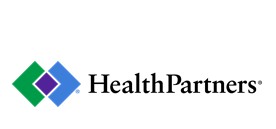Practicing what we preach: Mitigating Burnout and Compassion Fatigue through Conventional Wisdom and Innovative Technologies
In synchrony with health care providers’ reports of commitment to (and loving) their work, they are oftentimes burned-out with their caseloads, workplace politics, administrative demands and tendencies to under-report personal struggles or seek help. In this presentation, contemporary understandings of this problem, alongside empirically-supported strategies to mitigate it, will be described.
To begin, alarming scholarship that confirms the generally poor functioning of Western care providers (mental health, physical health) will be outlined. In synchrony with increased attention to self-care over the past 10+ years, investigators have shown that family therapists’, psychologists’, physicians’, nurses’, and other care professionals’ struggles are getting worse (not better). This is true across indicators of physical health (e.g., insomnia, obesity), health behaviors (e.g., alcohol use disorders, poor work/life boundaries), mental health (e.g., depression, burnout, compassion fatigue, suicidality), social health (e.g., divorce, intimate partner violence), and work-related performance (e.g., late charting, low professionalism, medical errors).
Conventional (old) wisdom – including things that we all know are important, but usually do not do (e.g., sleep hygiene, physical activity, purposeful time management, appropriate boundary setting), will be presented and paired with novel ways to promote and sustain beneficent behavior change. New and innovative technologies (e.g., wellness apps designed for the general public, compassion fatigue / satisfaction tracking apps designed specifically for healthcare providers) will be demonstrated in-vivo, and paired with individual- and team-based systems of maintaining provider wellness.
All told: attention to our whole selves (biopsychosocial/spiritual health) is essential. To effectively practice what we preach, and thereby honor our own humanness and well-being alongside that of the patient.
Target Audience
Behavioral Health Department of HealthPartners and Regions, psychiatrists and therapists.
Learning Objectives
Following this learning activity, participants will be able to:
- Articulate how health care providers are an especially high-risk population for burnout and compassion fatigue
- Apply strategies to promote and sustain positive health behavior change in conventional self care practices (e.g., sleep hygiene, exercise)
- Identify new and innovative technologies to monitor and track personal wellness (some for general public, others specifically for health providers)
HealthPartners is accredited by the Accreditation Council for Continuing Medical Education (ACCME) to provide continuing medical education for physicians.
HealthPartners Office of Continuing Medical Education designates this live activity for a maximum of 2.00 AMA PRA Category 1 Credit(s)™. Physicians should claim only the credit commensurate with the extent of their participation in the activity.
Successful completion of this CME activity, which includes participation in the evaluation component, enables the participant to earn up to 2.00 MOC points in the American Board of Internal Medicine’s (ABIM) Maintenance of Certification (MOC) program. It is the CME activity provider’s responsibility to submit participant completion information to ACCME for the purpose of granting ABIM MOC credit.
This program is designed to meet the Minnesota Board of Nursing requirements. It is the responsibility of each participant to determine if the program meets the criteria for licensure or recertification for their discipline.
Available Credit
- 2.00 AMA PRA Category 1 Credit™
- 2.00 AttendanceThis program is designed to meet the Minnesota Board of Nursing’s requirements. It is the responsibility of each nurse to determine if the program meets the criteria for licensure or recertification in their discipline.

 Facebook
Facebook X
X LinkedIn
LinkedIn Forward
Forward